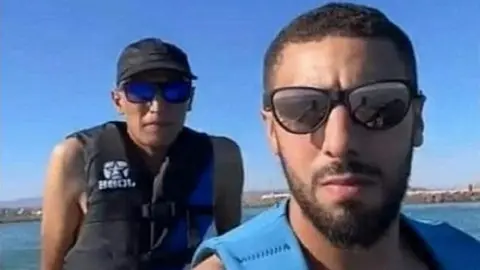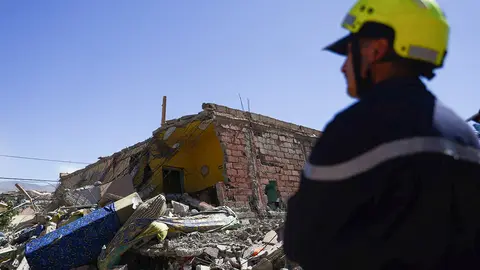Morocco condemns Algeria's use of the earthquake for political purposes

Almost a month after the devastating earthquake that caused thousands of deaths and injuries in the High Atlas areas of Morocco, the Moroccan ambassador to the United Nations, Omar Hilale, has condemned Algeria's use of the catastrophe.
"I would have wished that the hard times Morocco is going through, the mourning of the families, the deaths, the thousands of wounded and the destruction would have prompted them to keep silent to respect the moment, to show solidarity", Hilale began by pointing out to his Algerian counterpart at the UN.
The Moroccan diplomat accused the neighbouring country of "shedding crocodile tears and at the same time attacking a country that is still experiencing a drama". "They show their solidarity, their support, but at the same time they inject their venom, they insult the dead, they insult the Moroccans," Hilale added.
The Moroccan representative at the UN was referring to the coverage of the earthquake by Algerian media such as the Third National Television (ANT3) and AL24. Both media used rhetoric and images in a way that aligns with Algiers' official anti-Moroccan political positions.
The Algerian press used the earthquake to promote the regime's political agenda, highlighting Algeria's "immediate offer of aid" and criticising "Morocco's slow response to the crisis".
As a neighbouring country, Algeria offered aid in the aftermath of the earthquake. However, this offer, as well as that of France, was not accepted by Rabat, which only requested aid from Spain, the United Kingdom, the United Arab Emirates and Qatar. As a result, the Algerian media, like some French media, rejected the decisions taken by the Moroccan government.

As Morocco World News recalls, since the terrible earthquake, the Algerian press, in particular ANT3 and AL24, has not stopped attacking the Kingdom for not accepting its aid, without which, it seems, Rabat will not be able to overcome this catastrophe.
Instead of focusing on the terrible drama suffered by the country and its citizens, recognising the great work carried out by the rescue teams in extremely difficult terrain, or highlighting the incredible wave of national solidarity, Algeria's official television channels have chosen to politicise this natural disaster, as denounced by the Moroccan media.
According to Mohamed Mliless, an independent researcher in Ecolinguistics and Discourse Analysis, due to the current geopolitical tensions between Morocco and Algeria - countries that do not have diplomatic relations - the Algerian press has used the earthquake as a new front to confront Morocco.

In this sense, Mliless highlights in Morocco World News how the Algerian media focused on highlighting Algeria's humanitarian response in order to emphasise its leadership and compassion while, at the same time, criticising Morocco's response to the disaster. They also highlighted the issue of Western Sahara, the main issue that pits Algiers and Rabat against each other, even though it is unrelated to the earthquake.
"The Algerian regime is undoubtedly taking this opportunity to settle scores with Morocco on political, economic, sporting and cultural issues," explains the researcher. "They believe that we are in a moment of weakness and they think they should use this opportunity to launch relentless attacks in an attempt to further weaken the Cherifian Kingdom," he adds.

The language used by the media to talk about the earthquake is not neutral. The Algerian press chooses to use warlike language, revealing a certain bias aimed at confusing the public's perception of the events.
Among the words most frequently used in reporting on the disaster are "failure, incapacity and abandonment", while other positive concepts such as "preparedness, solidarity and resilience" hardly appear in the reports.

Even the selection of images reflects a certain bias. "Specifically, images are chosen that represent only one aspect of the situation," says Mliless, who claims that this is done in order to "further reinforce the narrative of Morocco as a state 'unable to respond adequately to the crisis on its own'".
"This selective representation not only shapes the viewer's perception but also subtly reinforces the media's underlying political agenda on Algeria", concludes Mliless.










